Robin Brant, BBC political correspondentpublished at 17:11 GMT 12 March 2015
tweets, external: am told @Conservatives in rochester & strood also have to pay £1850 costs after their claim against @MarkReckless was thrown out
Lucy Powell, Ed Miliband's chief election strategist, says on Question Time there is "absolutely no prospect of a Labour/SNP coalition"
Nigel Farage says UKIP would scrap much of the legislation designed to prevent racial discrimination in work
No 10 says his remarks are "deeply concerning" while Labour brands them "shocking" - but Mr Farage says he was misrepresented
A former head of fundraising for the Lib Dems steps down as a party candidate over donation claims
There are 56 days until the general election
Gerry Holt and Brian Wheeler
tweets, external: am told @Conservatives in rochester & strood also have to pay £1850 costs after their claim against @MarkReckless was thrown out
tweets, external: Medway County Court today struck out Conservatives' sour grapes legal claim against me. Thanks to my supporters and my barrister Paul Oakley
 Robin Brant
Robin Brant
Political Correspondent, BBC News
A court case brought against UKIP MP Mark Reckless by his former Conservative colleagues to try to recover costs after his defection has been thrown out. The Rochester MP tweeted that Medway County Court had struck out the legal claim related to printing costs of leaflets. In his brief message he described it as a "sour grapes legal claim". The BBC was told that Mr Reckless's agent, who also defected with him to Nigel Farage's party last autumn, was served legal papers at his home on Christmas Day.
 Eleanor Garnier
Eleanor Garnier
Political correspondent
David Cameron is to meet Nato Secretary General Jens Stoltenberg in Downing Street for bilateral talks, ahead of Friday's commemorations to mark the end of combat operations in Afghanistan.
The PM's official spokesperson says they'll cover a range of issues and one of the "priorities is looking at how they provide assurances to members of the alliance in Easter Europe" and "changing threats to our security around the world".
tweets, external: Only 40 MPs have voted on a motion calling on the government to guarantee to spend 2 per cent of gross domestic product on defence.
AND
Tweets, external: After a backbench business debate in the Commons, the motion was passed by 37 votes to three, a majority of 34.
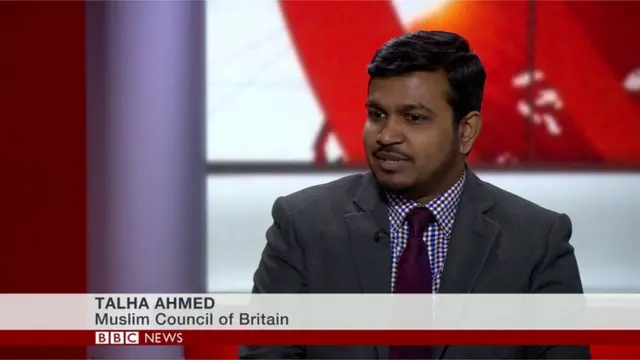
Talha Ahmed from the Muslim Council of Britain says he's "shocked" by Nigel Farage's comments on laws on racial discrimination in work.
"To speak of not having legislation or to do away with legislation is quite worrying... Either he's been incredibly naive not to realise what the real world is like, or he doesn't think racism is a big issue - either way it's problematic."
 The Spectator
The Spectator
In The Spectator today reporter Charlie Lyons has written a piece, external arguing it is not up to Home Secretary Theresa May to decide what counts as "British values". His piece draws upon the recently passed Counter-Terrorism and Security Bill and comments on "leaked" documents seen by the Daily Telegraph, which allegedly reveal Home Office proposals that are "likely to have significant, if apparently unintended, consequences for free speech in this country".
 Ben Wright
Ben Wright
Political correspondent, BBC News
We've certainly seen a reverse ferret from Nigel Farage during the course of the day. In the interview with Trevor Phillips he was quite clear - asked if he thought there was a need for a law against discrimination on the grounds of nationality, race, colour, Mr Farage said 'No'.
Today, though, he is making it quite clear that he thinks there's no need to fiddle with the rules around discrimination - but he does think there is a need to make it possible for employers to hire on the basis of nationality. It is a retreat from this interview... And that's provoked a huge political backlash from his opponents.
tweets, external: Lib Dems to return Ibrahim Taguri's Commons pass after acknowledging they broke the rules in giving him one, as he was a party fundraiser
Another busy day of political news today has so far seen:
UKIP leader Nigel Farage in hot water over discrimination legislation following comments he made in a documentary
The Intelligence and Security Committee publish its report into surveillance operations by UK agencies
Lib Dem parliamentary candidate for London's Brent Central Ibrahim Taguri stand down after allegedly accepting a potentially illegal donation
Former foreign secretary David Miliband call on the West to do more to resolve the crisis in Syria
MPs approve a motion calling on the government to commit 2% of GDP to defence spending in the next parliament
A new four-person panel revealed by Home Secretary Theresa May for the inquiry into child sex abuse in England and Wales
And that's just what we can remember! That's it from Nick Eardley and Matthew West for today. Brian Wheeler and Gerry Holt will see you through to midnight.
 Daily Politics
Daily Politics
Live on BBC Two
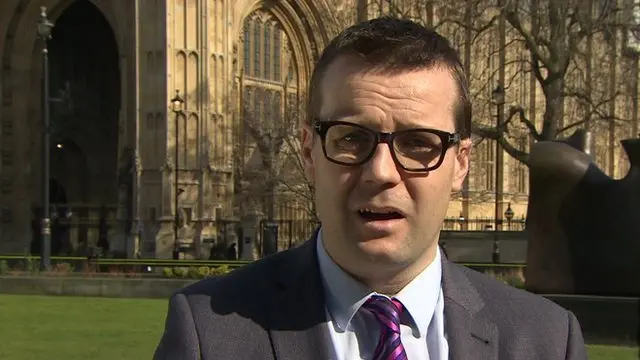
The National Health Action Party - set up in response to the government's NHS reforms in England - has launched its election campaign. It is fielding candidates in 13 seats, including those of the prime minister and the health secretary, and is proposing a 1p increase in income tax to raise £4.5bn per year. Co-leader Clive Peedell told Jo Coburn on the Daily Politics that "healthcare spending actually promotes economic growth" by keeping people healthy and redistributing wealth. Watch their interview
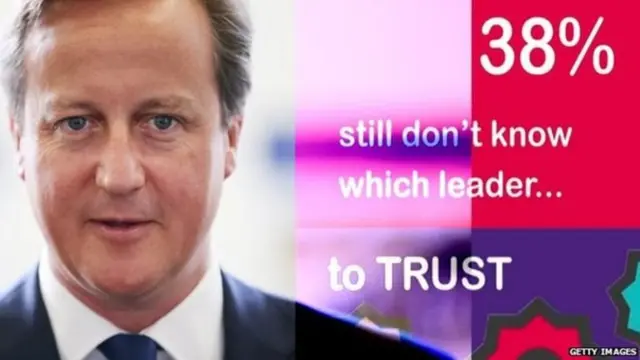
BBC Newsbeat have polled thousands of 18-24-year-olds on various election issues - and found there is a lack of trust in current political leaders.
Of those questioned, 38% said they don't know who they back the most to tell the truth. David Cameron came out on top with 20%. UKIP leader Nigel Farage was the least trusted but he would be the "most fun" on a night out, according to the survey.
Ed Miliband came second on most trusted, with 13% of interviewees picking the Labour leader, and the Green Party's Natalie Bennett got 12%.
MPs have approved a motion calling for the UK to spend at least 2% national income on defence. Conservative MPs triggered a vote on the motion which was passed by 37 votes to three, a majority of 34. The vote is not binding on the government.
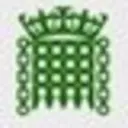 House of Commons
House of Commons
Parliament
tweets:, external The Official Report of the statement on #Ebola is online , external
tweets, external: Tell us what you think politicians should be focusing on. @ChrisMasonBBC introduces The Listeners' Election
tweets, external: I fully support UKIP view - British workers must take priority for UK jobs though we cant do that till we leave EU
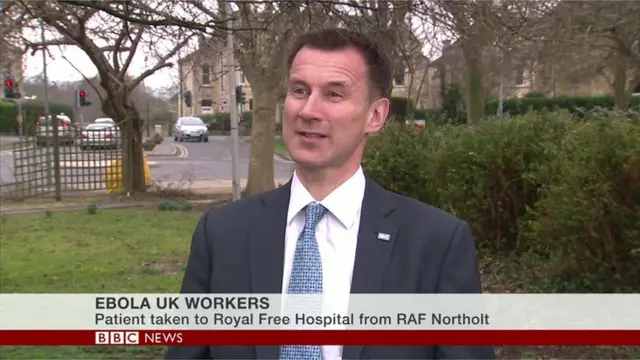
Health Secretary Jeremy Hunt confirms a British military healthcare worker infected with Ebola is back in the UK and is at the Royal Free Hospital in London. He says his thoughts are with her and her friends and family, adding: "It's worth remembering she is just one of 400 UK personnel in Sierra Leone now. We have turned the tide on Ebola and we have made Britain safer because of people like her who have been prepared to go out and take very big risks."
A proposal to give teachers up to a 2% pay rise may not be enough to recruit staff to the profession and encourage them to become school leaders, unions have warned. On Wednesday night it emerged a proposed pay deal had been signed off by the government despite what Nick Clegg called a "fierce" battle with Chancellor George Osborne. Elsewhere, Armed Forces staff, NHS GPs and Dentists will receive a 1% pay rise from 2015.
 Daily Politics
Daily Politics
Live on BBC Two
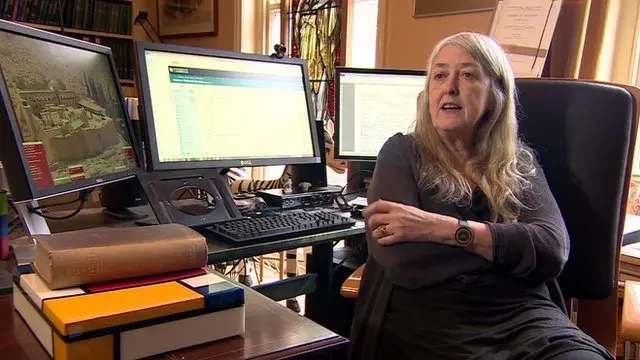
Talk of a referendum on Britain's membership of the EU in the coming years has prompted a lot of debate among politicians and business leaders on whether Britain should be in or out.
But what about those with a view on history? Daily Politics reporter Giles Dilnot spoke to Prof David Abulafia who chairs Historians for Britain, and Cambridge University classicist Prof Mary Beard (pictured), about what historians have to say about the UK's past and future relations with its closest neighbours. Watch the film here.
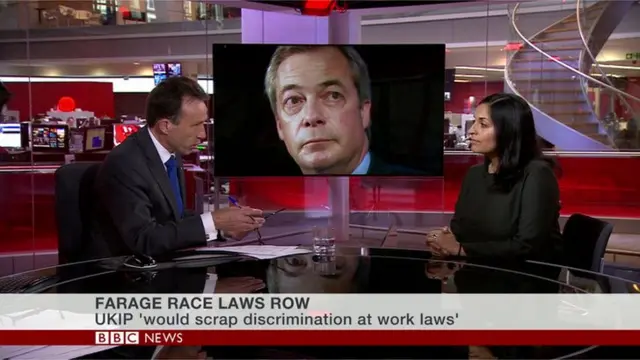
Lawyer Kiran Daurka has been speaking about Nigel Farage's comments on discrimination. She says equality law is "as relevant now as it has ever been". While explicit racism isn't seen every day in the workplace, Ms Daurka says, it happens underground and people still make "subconscious" decisions based on nationality and national origin.
"[The law] continues to be extremely relevant," she adds.